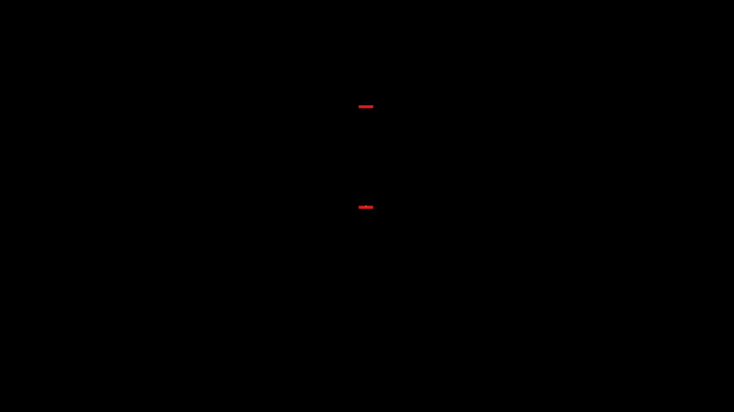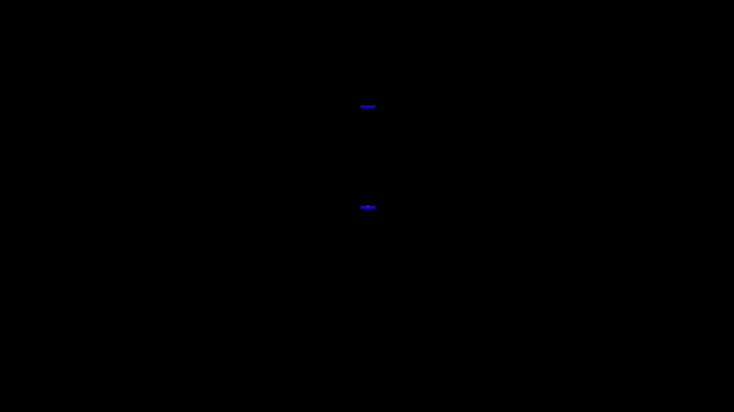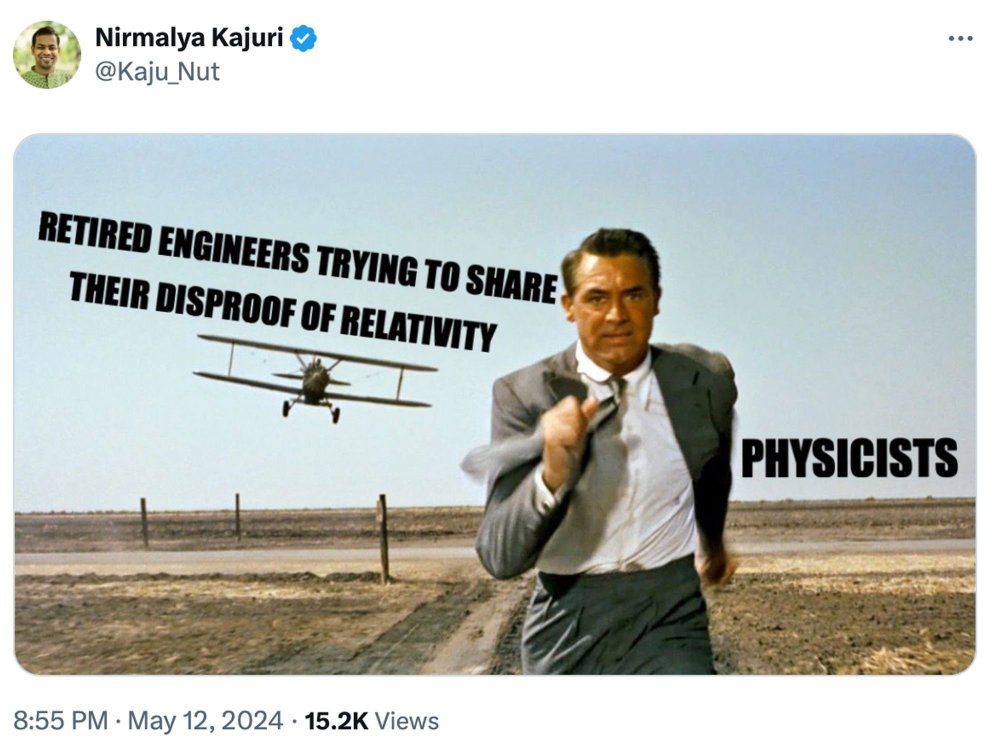Leaderboard
Popular Content
Showing content with the highest reputation on 05/23/24 in all areas
-
I find deGrasse Tyson a bit glib and the level of Cox’s explanations seems to be for 11yr olds - a sad reflection of the assumption in the British media that nobody in the population knows any science, even though we all learn a fair bit in school and many people take it further. (British media seems run by arts graduates , quite unlike say France where the prestigious grands ecoles were founded by Napoleon to study science and engineering.)Cox is also a bit annoying, somehow, for reasons I can’t quite put my finger on. Kaku seems to be a bit nuts, but I don’t really know much about him. Sagan was far better than any of them I think. I quite like Sabine Hossenfelder on physics.2 points
-
1 point
-
The books that teach the spirituality say basically the same things, that you're flawed and deserve eternal torture and misery unless you believe the way they tell you. It doesn't need much corruption from there, does it?1 point
-
1 point
-
Trust me, in online discussion, you want the conversations to be very specific. The probability of reaching some kind of consensus or meaningful stance is much higher when the topic is more focused. And as swansont mentioned, people responding to multiple ideas in the same thread is chaotic and hard to follow. If you want a better topic than moving away from capitalism, what about changing our education processes? I've heard some great approaches designed to better prepare children for modern life, and I've often thought we leave too much to parents in the early years, and then wonder why kids get so screwed up.1 point
-
My stance, the stance of those I'm talking about, or something else? Never mind, I don't care what it's kinda like. It's what I said, what I meant, and you should feel free to be clearer in your responses. You think that's the point? That your concept of religion/spirituality should only lead to outcomes you approve of? You're asking why would the Abrahamic religions reduce humans to garbage, spread lies, and oppress so many folks? But you don't ask WHY ARE THEY doing it, like you're wearing blinders and can't see it happening all over the world?1 point
-
Broad topics tend to spawn multiple lines of discussion. We prefer one topic per thread.1 point
-
I think we need to divest ourselves of capitalism, personally, and the best way to start that is to focus early on teaching children ways to succeed through cooperation as opposed to competition. And I'm not talking about getting rid of competition, just educating young people on how humans get more positive outcomes by cooperating with each other than we do competing against each other. A few generations of that type of focus might remove much that is highly toxic in our societies.1 point
-
For me it has to be David Attenborough. I find his series as fascinating and awe-inspiring now as I did as a child. For YouTube, the group of channels put out by the profs and associates at Nottingham University seem very well curated and pitched at an accessible level. Professor Poliakoff on the Periodic Videos chemistry channel is particularly entertaining. Associated channels are Sixty Symbols (physics) and Numberphile (maths).1 point
-
Thank you for taking the time to actually try to understand my position. You've hit the nail on the head, 'truth' is variable; we can constantly improve on it, but never quite reach it. It is the journey, not the destination. But, using your analogy, a person who has 'good enough' morals may be on his way to sainthood, but he/she isn't quite there yet, so we don't use the 'saint' descriptor for him/her. Similarly for 'truth'; if absolute truth is unattainable, it makes no sense to use that descriptor for our current knowledge base as it is in a constant state of flux. Other members definition of 'truth' fit the criteria of prehistoric man as well as modern man, but they are not the same, so saying prehistoric man did not have the truth, implies we do not have the truth compared to a future human. Sort of renders the term meaningless, doesn't it ?1 point
-
A. Einstein. As a teen, I was driven by the ideas and by the evolution of "the attempts of the human mind to find a connection between the world of ideas and the world of phenomena" in The Evolution of Physics by Albert Einstein and Leopold Infeld.1 point
-
James Burke. Connections just blew me away as a teen and The Day the Universe Changed as a young adult.1 point
-
It's Sagan, of course. And after that, Sagan. The poetry, the music, the absolutely unfettered passion for understanding it all that cannot be muffled in any way. The Cosmos is all that is, or was, or ever will be... And I was immediately and unconditionally engaged for the rest of my life. As to the rest of them, I can't help but feel they've been built as marketing products in a way, probably through no fault of their own. I agree with exchemist that Hossenfelder means business more than any of the others. Sorry for the mixed metaphor.1 point
-
Yes, as a minimum. I think it is also important that world views or scientific theories are consistent, in themselves and between each other. Another important criterion is explanatory power: the more phenomena we can subsume under only a few basic laws of nature, the better. All this does not lead to 'absolute truth', but a better match between our theories and the reality these theories describe. But the theory never becomes reality itself! I think it is this idea of absolute truth that bothers @MigL, no? But that are interpretations, not scientific theories, unless somebody discovers experiments that can show which interpretation is correct (or wrong). We already had such a surprise (Bell's theorem). Either that, or until an experiment is designed these are speculations, or when we never find discriminative experiments, the interpretations will be meta-physics. So what changed since this antiquity? Reality or our ideas about reality? Was the earth flat once, and not anymore? It is so simple: some empirical claims are flat out wrong, independent on what people believe. As said above, it seems to me you think 'absolute truth', in the sense that we know we have 'caught' reality exactly as it is. That, surely enough, lies beyond our reach. But a map that locates the Eiffel tower in Paris, near the Seine, is definitely 'truer' than a map that locates it in Wall Street in New York. Ah, there it is. I would say there is truth, but as a heuristic principle. It shows a direction where to go, but not something that can be reached, as a the ultimate endpoint of our quest to understand the world. It is a bit like I am giving up to be a morally good person, because becoming a saint (or boddhisatva) lies beyond my reach. NO! Exactly the opposite! Our ideas about reality improve, they become more encompassing, explain more phenomena than older theories, we can base more and more technology on it: in short, they become 'truer'. More and more about reality is dis-covered. That would be a huge discovery. But in the meantime we have learned a lot about the inner perspective of this simulation. Unless the operator of the simulation starts to change parameters, e.g. the speed of light, all our knowledge of the inner workings of the universe created by the simulation stays valid. I support that.1 point
-
As mentioned its useful for quick references. However one has to be careful on reliability. More often than not you would find good textbooks, dissertation papers and peer review material far more reliable. This is particularly true with subjects that are often seen in our Speculation forum such as ether based theories as one example. I've often seen wiki pages edited to support a particular view point. Thankfully those pages typically don't last long before they get changed again.1 point
-
I appreciate you weighing in on this. This seems to be a chronic problem, where the definition of truth that has been in common usage in philosophy for centuries gets discarded for some improvised personal definition. It is impossible to discuss a topic if people can't agree on the basic definitions of terms. No one in science would say "Saturn is farther from the sun than Mars, but that's just my truth. You may have some other truth." Once we were able to measure planetary distances, it was clear that the statement was true, and holds true so long as those planets remain in their stable orbits. Past statements held to be true that were proved false were usually statements arising from the inability to make a crucial measurement or have a longterm collection of data to reveal slower trends. Someone invented lenses that allowed a person onshore to observe the mast of a ship several miles away drop over the horizon as it sailed away. Every time our limited perceptions are augmented, our maps of reality get better. Of course, the skeptical stance is that we could all be mistaken, having a mass hallucination or living in a Matrix where our environment is just code, but that stance is just to keep us humble. Which is why empirical truth (or synthetic truth, as it's also known) can usually be viewed as high-probability statements and not absolutes. And Duhem-Quine, as @sethoflagos mentions, reminds us that most truths are predicated on a bundle of other proven hypotheses. My earlier-exampled Saturn- Mars relationship depends on background assumptions about how astronomical obervations are made and the reliability of telescopes, how planets move in regular orbits and maintain a fairly constant orbital velocity, that an eccentric ellipse orbit tends to maintain its present degree of eccentricity, etc. I think Duhem Quine allows that background assumptions can be teased out and made explicit. They don't have to remain unstated. It is just saying that it is always possible that some background assumption was overlooked and therefore a perfect falsification is not possible in the real world. I could make an exhaustive list of all the hypotheses behind saying that the Earth is not flat, and still overlook some hidden reality. We had this lovely strong web of beliefs, strongly supported by empirical evidence, but somehow missed that giant array of mirrors and force fields that the Alien OverLords set up to convey the illusion that we live in a solar system. Ockham suggests we ignore this, but it does always keep us a few cents away from proof or absolute truth statements. (this is sort of what fundamentalist Christians do when they suggest that all the fossil evidence for evolution was actually fake evidence that God, for some reason, placed in the Earth to mess with our heads or whatever...)1 point
-
I completely agree with @TheVat. The idea of 'truth' makes no sense if we do nor relate to an objective reality. Our scientific theories are about something. And they can be wrong, or true, in their (limited) domain. The earth never was flat, we know that. A majority believing that is was (is) may have reasons to think so, but it is, and was never true. For me the expression 'my truth' makes no sense: the word 'truth' implies that it is claimed to be the case for everybody. We dis-cover reality. Maybe not as it is, but as a map of reality. If we behave according to the map, e.g. find our way to the Eiffel tower, and we get there, then the map was 'true'. There may be much left out from the map, but the map expresses at least some true aspects of reality. Science is not just a 'narrative', as many post-modernist philosopher liked to say.1 point
-
This is the dominant definition of truth in the past century - that truth is by definition statements that correspond to an objectively determinable state of affairs in the world. The basic idea of the correspondence theory is that what we believe or say is true if it corresponds to the way things actually are – to the facts. This idea can be seen in various forms throughout the history of philosophy, but it really got serious traction with folks like G. E. Moore and Bertrand Russell. So you're in pretty good company, and I would say the correspondence theory has generally been adopted by scientists. 8 billion people may entertain myriad beliefs but those cannot gain the status of truth, or true statements, unless they correspond to objectively determined facts. E.g. "I see the light is red," is subjective, but "Anyone who measures the light finds its wavelength to be 650 nm," is true because it does not change due to variations in human perception, i.e. it corresponds to a fact external to a particular perceiver. Beliefs can change. "The earth is flat" was a belief that eventually was shown not to match the reality. So it was never true, because the earth has always been an oblate spheroid. The truth has not changed with respect to the earth, our beliefs have. Now our beliefs correspond better to the fact that the earth is round. But the truth was always what it was - in that sense, it is objective, because it doesn't "care" what we believe. The epistemological goal of humans is to improve our perceptions and measurements and inferences from them to get closer to the truth - the objective reality outside our heads. Were this not the case, no one would bother with science or philosophy and we would bow to chaos. To reiterate, there is no such thing as "my truth." Truth, by its definition at least since the Enlightenment era, is that the truth is out there in the world and not something that only corresponds to one person's belief system. I keep hammering on this because I see many people veering towards solipsism (as Moon mentioned) and the incoherent notions of personal truth or alternative facts. If it's personal, and only personal, then it's an opinion or a belief or a conjecture or a feeling. Not a truth.1 point
-
The light clock experiment with 2 light clocks( red and blue) starting at the same point: The expanding circles highlight how the the light pulses travel at c. The same experiment, but now, we are "riding along" the blue light clock. From the inertial frame where the red clock is stationary, the blue clock ticks slower, and the from the inertial frame where the blue clock is stationary, the red clock ticks slower. Keep in mind this is the same scenario, just viewed from different inertial frames of reference.1 point
-
1 point
-
Halc ,thank you so much for your time and good points. You are correct airport moving walkway is inspiration. I tried to explain this : The pedestrian 1 moving up down on non moving road is system 1 . pedestrian 1 is moving relative to pedestrian 2( non moving observer - reference point) Speed v1=1m/s has only vertical component - horizontal component of speed is zero. system 2 Is movement of road relative to pedestrian 2. The road moves horizontally at speed v2=1 m/s I mentioned non moving pedestrian 1 - relative to road. Pedestrian 1 movement (together with road)observed by pedestrian 2 is 2 m horizontally. The same pedestrian 1 we can put in non moving position at any position between A,B . The observed horizontal distance would be 2 m That is movement of road - relative to pedestrian 2 Conclusion : There is two simultaneous movements in the same reference frame (pedestrian 2) vertical movement of pedestrian 1 and horizontal movement of road Again ,both observed by pedestrian 2 at the same time . For system 3 I used jet pack and nozzle to emphasize the importance of nozzle angle Alfa. When two speeds vertical and horizontal Acting at the same time they create observed trajectory to be seen by pedestrian 2 as a diagonal . Diagonal which is 1.42 m long. This diagonal angle rotation is equal to angle Alfa of nozzle 45 degrees . The tan angle alfa =dv/dh dv=d1 =vertical distance of 1m dh=d2=horizontal distance 1 m The road moving horizontally and the pedestrian moving vertically on the road(picture at the top of thread ) at the same time will create the same trajectory as a trajectory cretaed by nozzle on the jet pack moved CW (picture at the bottom of the thread ). When we now the length of trajectory (1.42m) this is only one half of total distance ,this half goes up at 45 degrees - the other half is 1.42 going down at 45 degrees . So total length is 2.84 m . This is length observed by pedestrian 2 - observing only pedestrian 1. Now the most important part speed vector v3 on the chevron trajectory of 2.84 m is v3=1 m/s. This v3 speed vector is created by vertical component v3 v=0.7 m(originates from vertical v1 - system 1) and horizontal component v3h=0.7 m(originates from v2 - system 2). The total length d3/v3=t3=1.42 Times 2 is total time t3=2.84s. And now the vertical component v3 v =0.7m is the observed vertical speed of pedestrian 1 (by pedestrian 2) It will take exactly d1 /v3v =t3v=1.42 sec for pedestrian 1 to travel distance d1 =1 m. This is slowing down of the clock. Here is explanation: If instead of speed v1=1 m/s as a fastest speed in universe we use c-speed of ligh=v1 And instead of pedestrian 1 we use light clock 1 with L=3x10e8 m(distance between mirrors). Instead of road let’s use train. Theoreticaly(it is impossible ) If train moves at speed v2=c The total time t3 will be t3=2.84s - the same as for pedestrian 1 . The slowest tick will be 0.7 s Not 0 - like we think - at speed of light (hypothetically) . in my humble opinion , time dilation does not happen . actually overlooked increase in observed trajectory length (chevron system 3) d3 Is the reason for observed time increase . The original tile dilation experiment used light clocks with L=1m Distance between mirrors L. Light travels that distance in one second 3x10e8 times. It is very hard to observe that chevron d3 trajectory length d 3 only increased to d3=1.00000001 m from original d1=1 m But it is calculated - as a time dilation . I would like to say again - what we call time dilation is mislabeled increase in observed chevron trajectory length.-1 points
-
That's the Dawkins Delusion, I don't have a god therefore no one else can...-1 points
-
-1 points
















